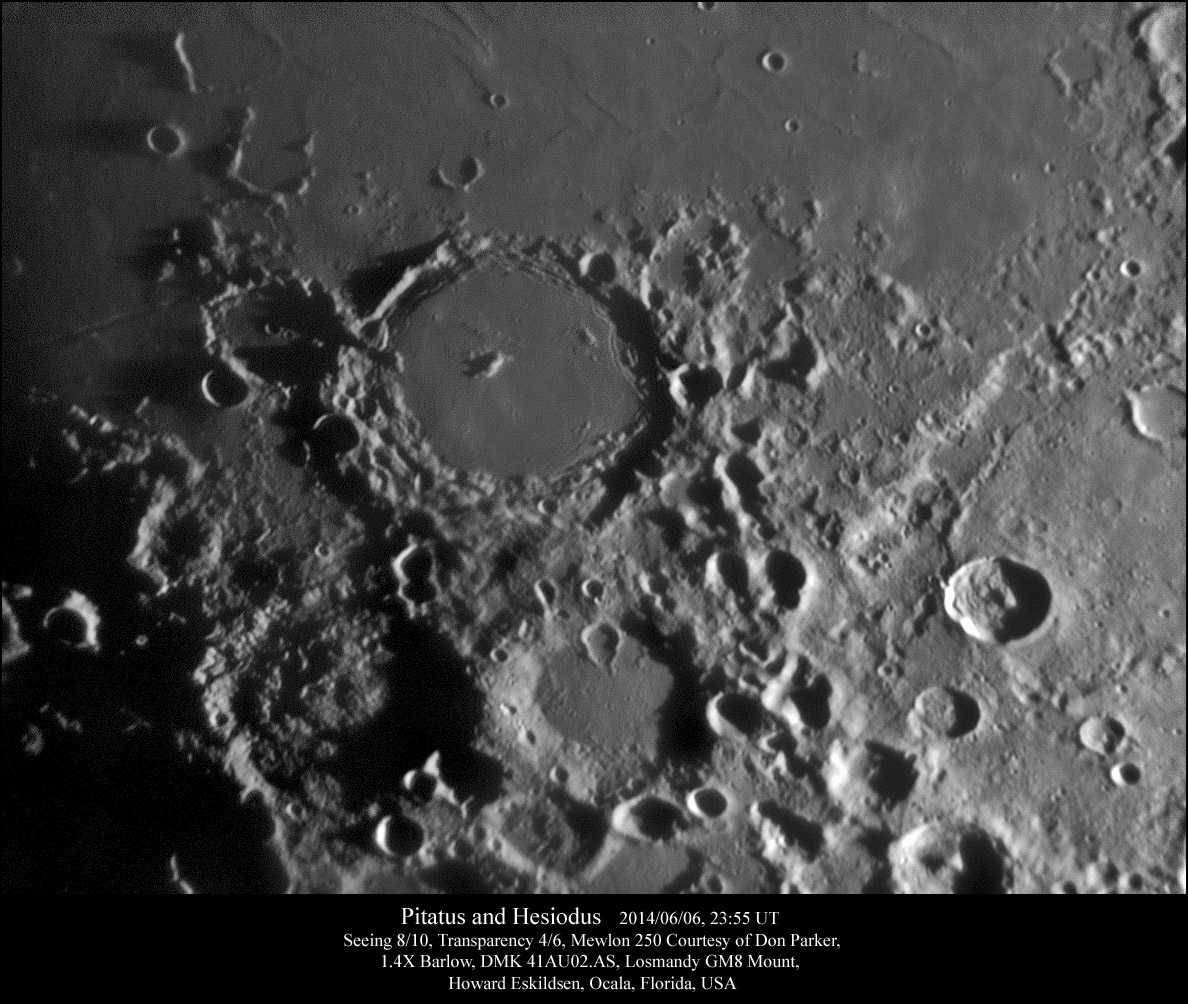November 7, 2024
Graben Gap
Originally published June 9, 2014

image by Howard Eskildsen
I was first drawn to Pitatus and Hesiodus by the late Jose Olivares. One evening as we were winding down an observing session at his place, he told me that there was just one more thing that I needed to see before I left. Through his folded 10" refractor the curious "V" cone of light traced its way across the floor or Hesiodus, pointed towards the rising sun. We discussed possible reasons for this phenomenon, but he concluded that it was not fully explained. On this image it appears as a gap between shadows from a breach in the western wall of Pitatus, with two small craters within the light-V and two peaks of rubble emerging from the shadows east of the apex of the "V." But why would there be a breach in the western wall of Pitatus in the first place. On this image there does not appear to be a crater chain or single impact to explain it. I have often wondered about floor-fractured craters. Obviously their floors were elevated, but most likely their rims were also elevated from their original position by magma intrusion below. They were just not elevated as much as the floor due to isostatic differences caused by the mass of the rims. Could this gap in the western wall of Pitatus be a graben created by asymmetric uplift of the crater rim? After looking at detailed images on LROC QuickMap, I think it is very possible. I just wish I could discuss it with Jose.
Howard Eskildsen
Comment by CAW: I think the graben is related to the overlap (even though small) of the rims of Pitatus and Hesiodus. We know from other cases that overlapping rims are low. Here is an outrageous suggestion, inspired by the LRO image: Did the hill on the western side of the floor of Pitatus slide down from it's rim, creating the gap/graben? And the lesser hilly debris on the floor of Hesiodus looks like it too could be material previously in the rim. But the Pitatus floor hill is much lower than the rim heights on either side of the gap, and in fact those two sides are 500-900 m higher than adjacent rims. Perhaps the overlapping rim area was uplifted, except for the gap area. I don't know why any of this might happen though!
Related Links
21st Century Atlas chart 16.
Yesterday's LPOD: Monster Trail
Tomorrow's LPOD: LPD Confirmed in Australia
COMMENTS?
Register, Log in, and join in the comments.



